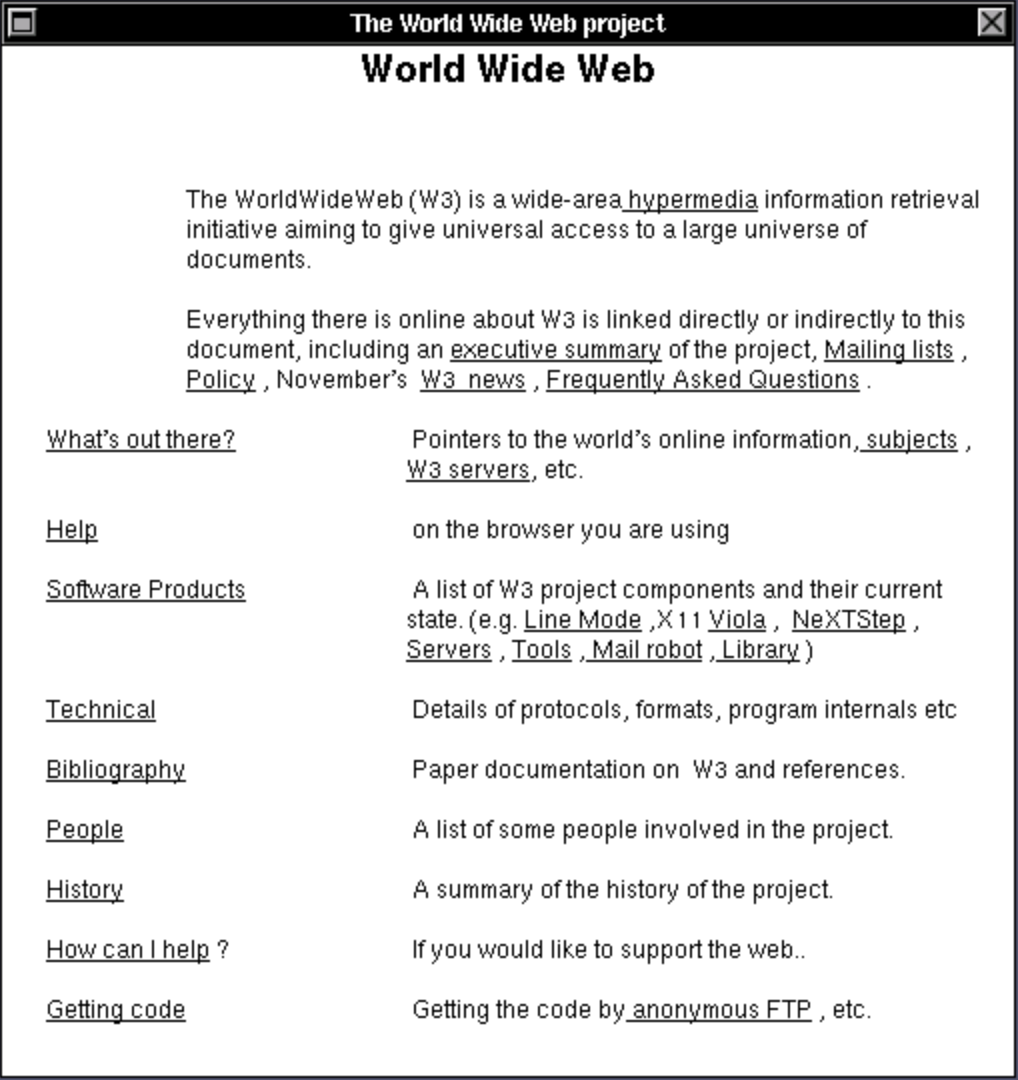No, I’m not talking about Taylor Swift’s birthday, I’m
referring to the 30th anniversary of the World Wide Web. I know, it
seems like only yesterday Tim Berners-Lee’s creation was first introduced to
the world, and forever changed the way we shared and organised information.
Forget waiting for the promised ASI Singularity, this was the last one, and anyone
who claims they could see how this would change the face of human society is a
liar.
In March 1989 at CERN in Switzerland, Berners-Lee wrote and
submitted this proposal
for a new way of managing the huge amount of information the research facility
generated. He was concerned with the lack of comprehensive documentation for
projects, as well as the lack of information retention as people came and left
when projects concluded. With the LHC project looming large in their immediate
future, keeping track of all the data was becoming a concern. The idea of
hypertext and hypermedia had been floating around for a while, but no-one could
really find a way to make good use of it. Even while trying to focus largely on
text, Berners-Lee already understood that whatever his project ended up with,
it would eventually have to support at least graphics if not other media.
20 months later, and WorldWideWeb became available to the
staff at CERN, promising to transform the way people interacted and retrieved
information. From there, of course, the whole thing exploded and continued
development and was let loose into the wilds of the Internet, digiforming the
digital ether into the cyberspace we know and are addicted to now.
I’ve made this a short post because there’s no point in me
playing historian when the job has been done for me. A bunch of devs and
designers descended on CERN and have charted the journey that began with the
Information Management proposal, and hasn’t really ended. They’ve even managed
to create the original browser, and make it work within your browser. All of
this you can find here, and you would
be remiss to not take a look.

Comments
Post a Comment